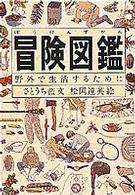Full Description
Homeric language fascinates because of its many oddities with respect to other forms of Ancient Greek. From which dialects did this poetic language take shape and develop? In which ways did individual poets alter the language? In this volume you will find twelve cutting-edge studies on linguistic change in oral traditions, with a focus on Early Greek epic but also including Near-Eastern traditions (Biblical Hebrew, Quranic Arabic). Several studies focus on an innovative idea of phonological change occurring within an oral tradition. You will also find studies on the adaptation of linguistic form to meter; formulae and epithets; and contact between different traditions or registers.
Contents
List of Figures and Tables
Abbreviations
Introduction
Lucien van Beek
1 Prosody, Metre and Reflexes of *r̥ in Epic Greek: The Case of ῥέζω versus ἔρδω
Lucien van Beek
2 Changement linguistique et réaction de la langue épique: sur hom. εὐηγεν(ής), εὐρυπυλές et χαλκοβατές
Alain Blanc
3 Homeric Constructions, Their Productivity, and the Development of Epic Greek
Chiara Bozzone
4 Metrical Constraint and Dialect Borrowings: ἔσεται, ἐσσεῖται and the Homeric Futures of the Verb 'To Be'
Albio C. Cassio
5 A Night Reconnaissance: On Νύξ and Her Aeolic (?) Epithets in Homer
Stefan Höfler
6 The Changing Use of Tmesis in Early Greek Hexameter Poetry
Thomas McConnell
7 The Morphology and Syntax of the Imperative in Homeric Prayers
Simon Pulleyn
8 Ṯamūd: Reading Traditions; the Arabic Grammatical Tradition; and the Quranic Text
Marijn van Putten
9 Archaism, Innovation and Modernization in Homeric Language
Jeremy Rau
10 Alleged Anatolian Phraseological Borrowings in Homer's Language: A Reconsideration
Zsolt Simon
11 Sound Change in the Hebrew Reading Tradition
Benjamin Suchard
12 Dialectology and the Origin of Iliad and Odyssey
Rudolf Wachter
Index Verborum
Subject index
-

- 電子書籍
- 汝よさらば(二)浮世絵宗次日月抄 祥伝…
-

- DVD
- 不思議の国のアリス






